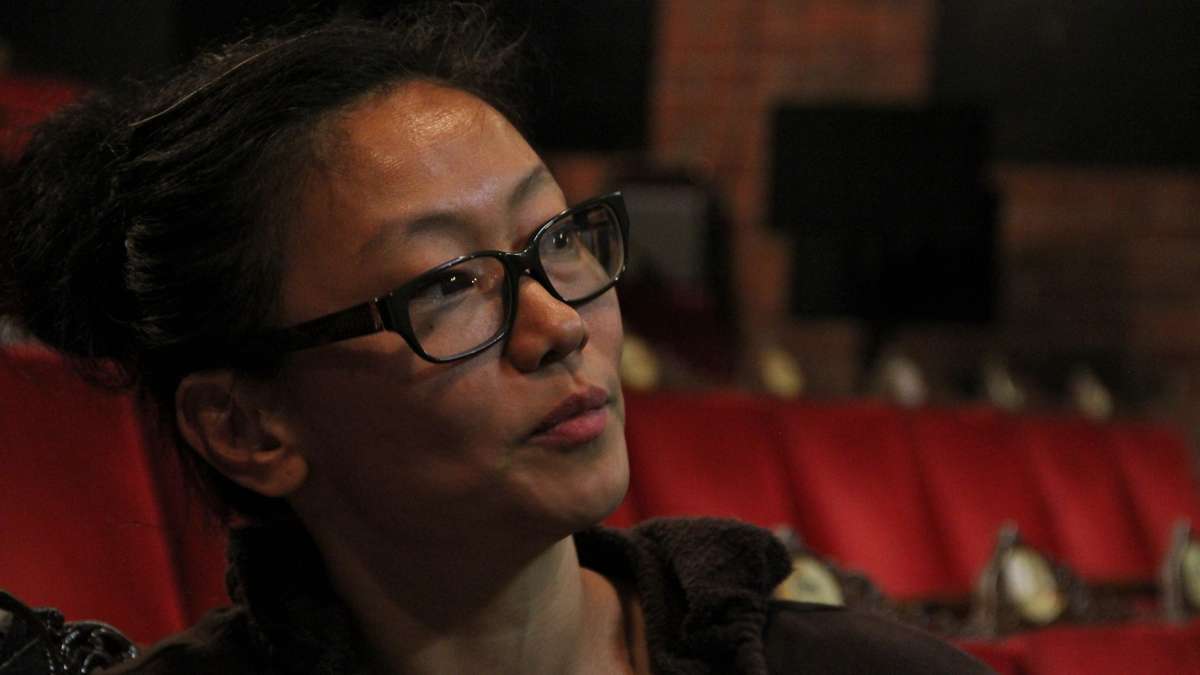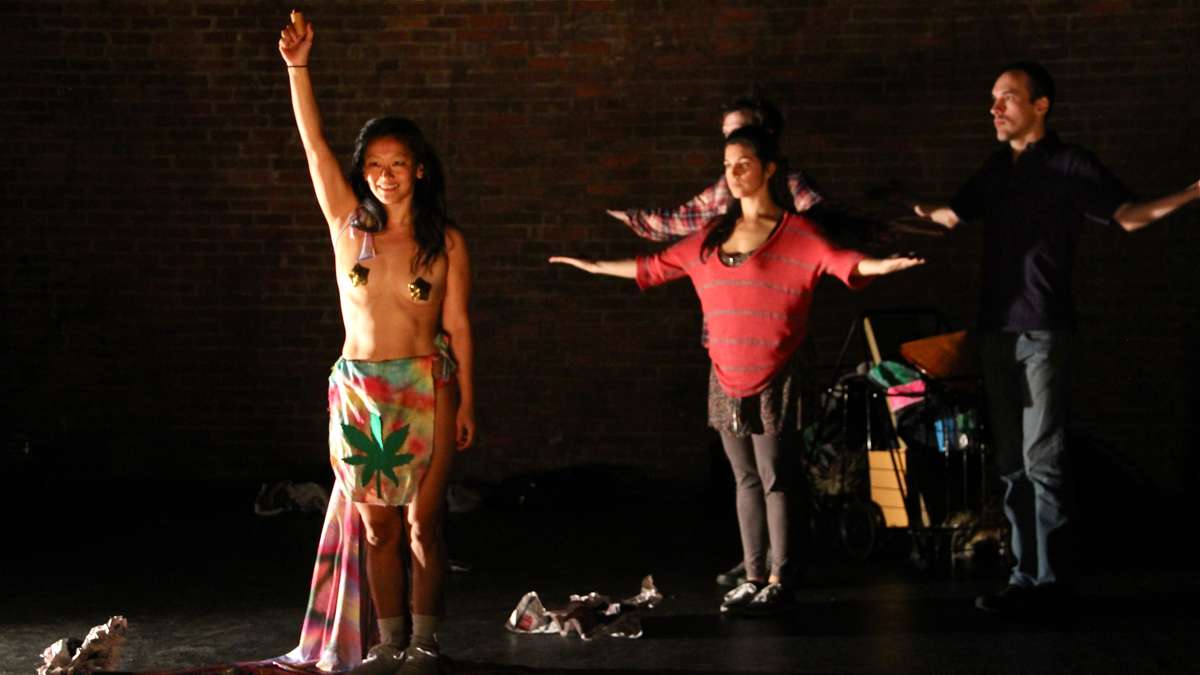Salute to activist’s quest for change sheds light on woman once a fixture on Penn campus [photos]
Listen-

Soomi Kim spent two years studying the writings of Kathy Chang and interviewing those who knew her. The resulting play
-

-

The life of Kathy Chang, a radical peace activist who went by “Kathy Change,” will be presented as “Chang(e),” a play premiering in Philadelphia this week during the National Asian American Theater Conference and Festival (ConFest).
Chang spent most of the 1980s and ’90s engaged in a constant and prolonged campaign to change the world through public performance art. A fixture on the campus of the University of Pennsylvania in West Philadelphia, she was known for her outlandish props and nearly nude costumes.
Chang ended her life in 1996 with a dramatic act of public self-immolation, pouring gasoline over her body and setting herself on fire.
“I’ve been to a lot of conferences attended by people in the activist community and theater community, and a lot of people don’t know who she was,” said Soomi Kim, a New York-based performance artist who created and performs “Chang(e).” “I thought that was interesting and sad. Her story deserves more recognition.”
Kim spent two years researching the life of Chang, reading her prolific writings and interviewing close friends. She discovered the mentally unstable artist was more than the “crazy Asian lady” who set herself on fire. In the 1970s, Chang had been part of the seminal Asian American Theatre Workshop, and was briefly married to its founder, Frank Chin.
In the 1980s she moved to Philadelphia and turned the whole of her attention to promoting a utopian vision of world peace and legalized marijuana.
“She called herself a hopeless optimist,” said Kim. “She actually thought she could stop war by making art, doing things like projecting film images on tanks, in front of soldiers, with images of peace and love and stop them in their tracks.”
Chang’s suicidal thoughts were never far from her utopian fantasy. She had attempted to kill herself as a teenager by cutting her wrists, and her mother killed herself with pills, shortly after mother and daughter had a fight. Chang, then 14, was the first to discover her mother’s body.
“The guilt she must have felt, to have her mother take her life. They had a contentious relationship,” said Kim. “My theory is she chose to try to save the world because she couldn’t save her mother.”
Kim portrayal of Chang is part biographical, part fantasy. The multimedia piece uses mythological elements that hint at Chang’s inner life. “I’m a big fan of psychological thrillers. I like an element of mystery,” said Kim.
The piece is the last in a loose trilogy based on the lives of Asian-American artists: martial arts star Bruce Lee, Korean-American novelist Theresa Hak Kyung Cha, and Chang. All of them visionary, mutlidisciplined artists who died young.
Kim only discovered Chang a few years ago, long after her suicide. As an Asian-American performance artist whose mother died young (Kim was 12), she felt a connection.
“At first, I didn’t want to recognize a relationship. I thought her story was so dark and tragic, and a part of me was scared to embark on this and go to that dark place,” said Kim. “But I’ve turned a corner. I found it to be very hopeful and life-affirming.”
“Chang(e)” will be performed three times — Wednesday, Friday, and Saturday – at the Interact Theater in Rittenhouse Square.
WHYY is your source for fact-based, in-depth journalism and information. As a nonprofit organization, we rely on financial support from readers like you. Please give today.





